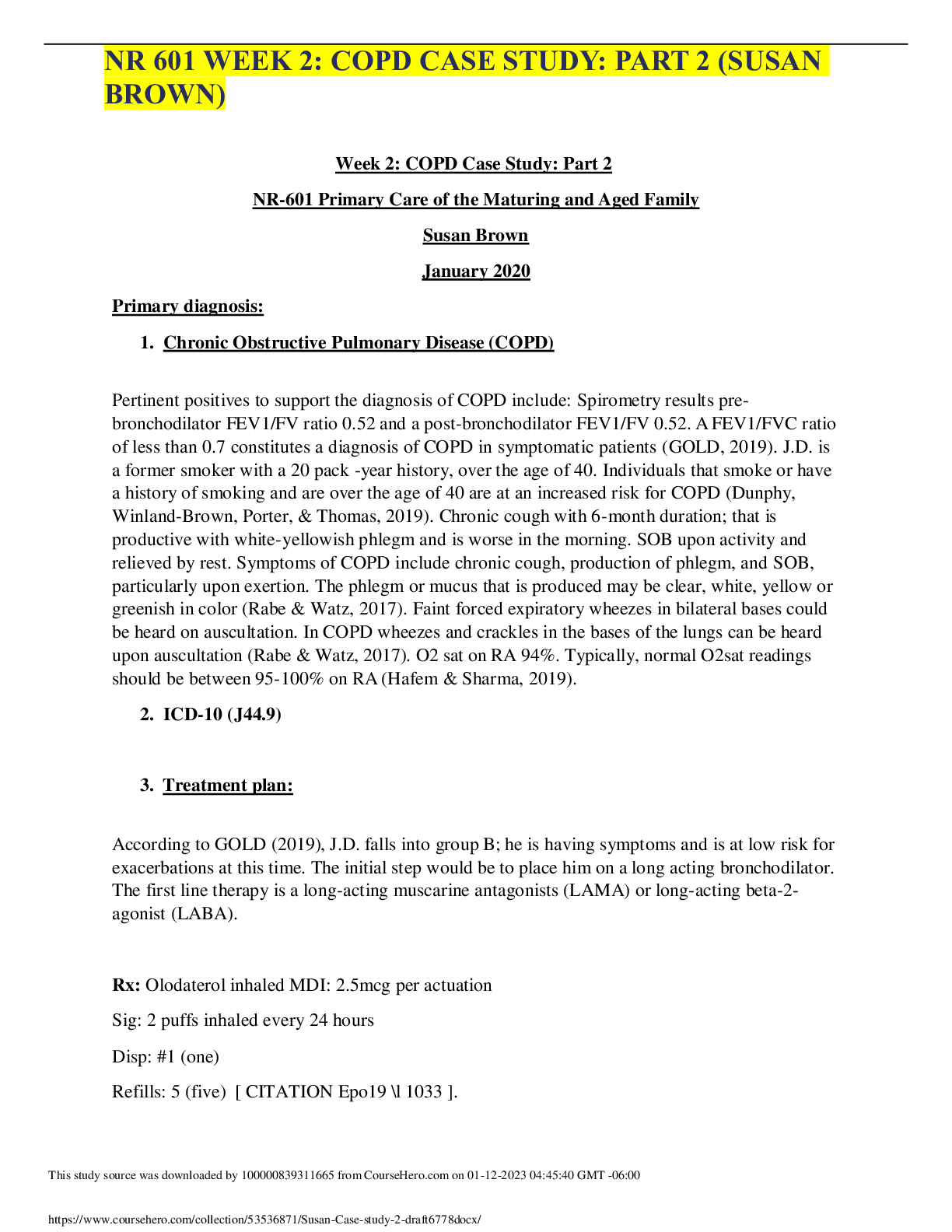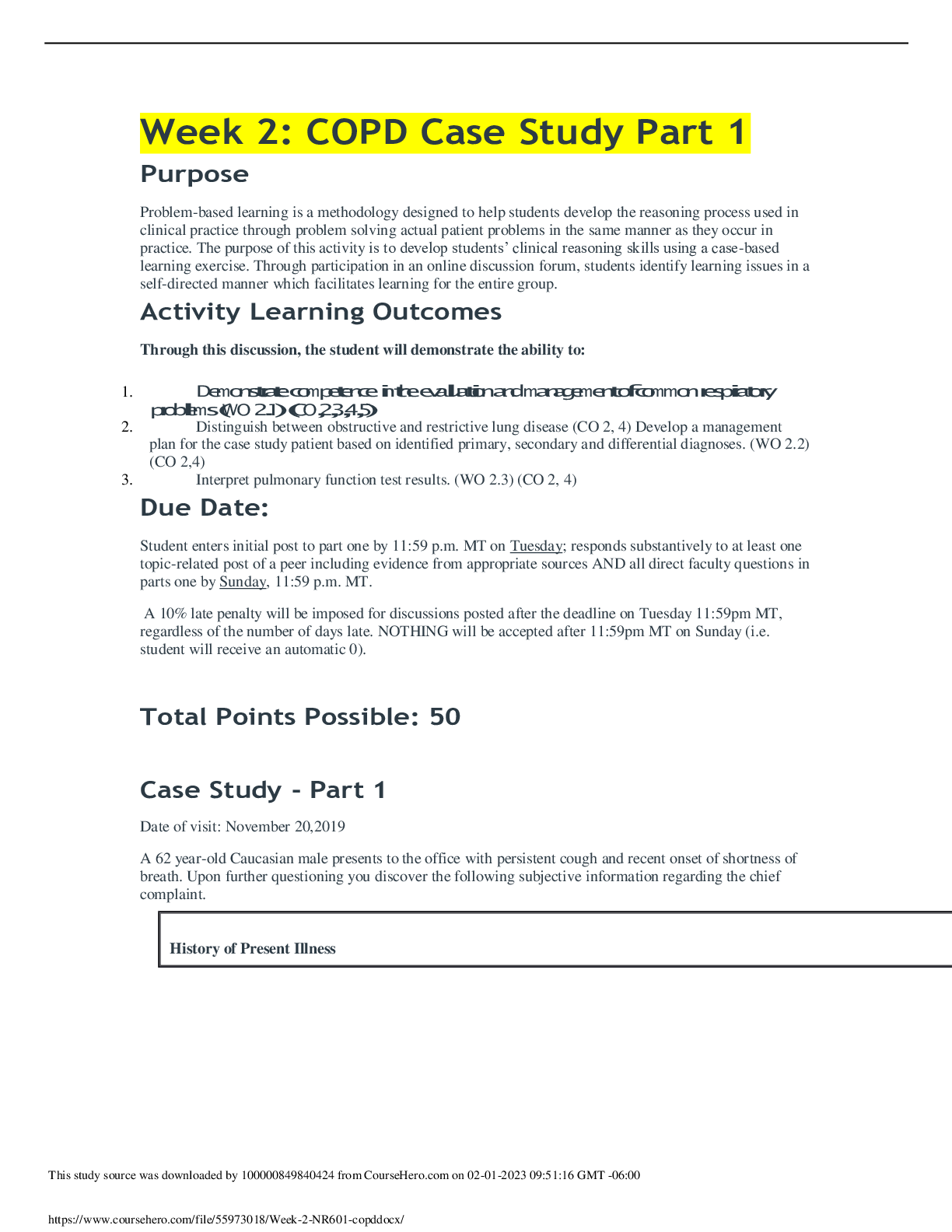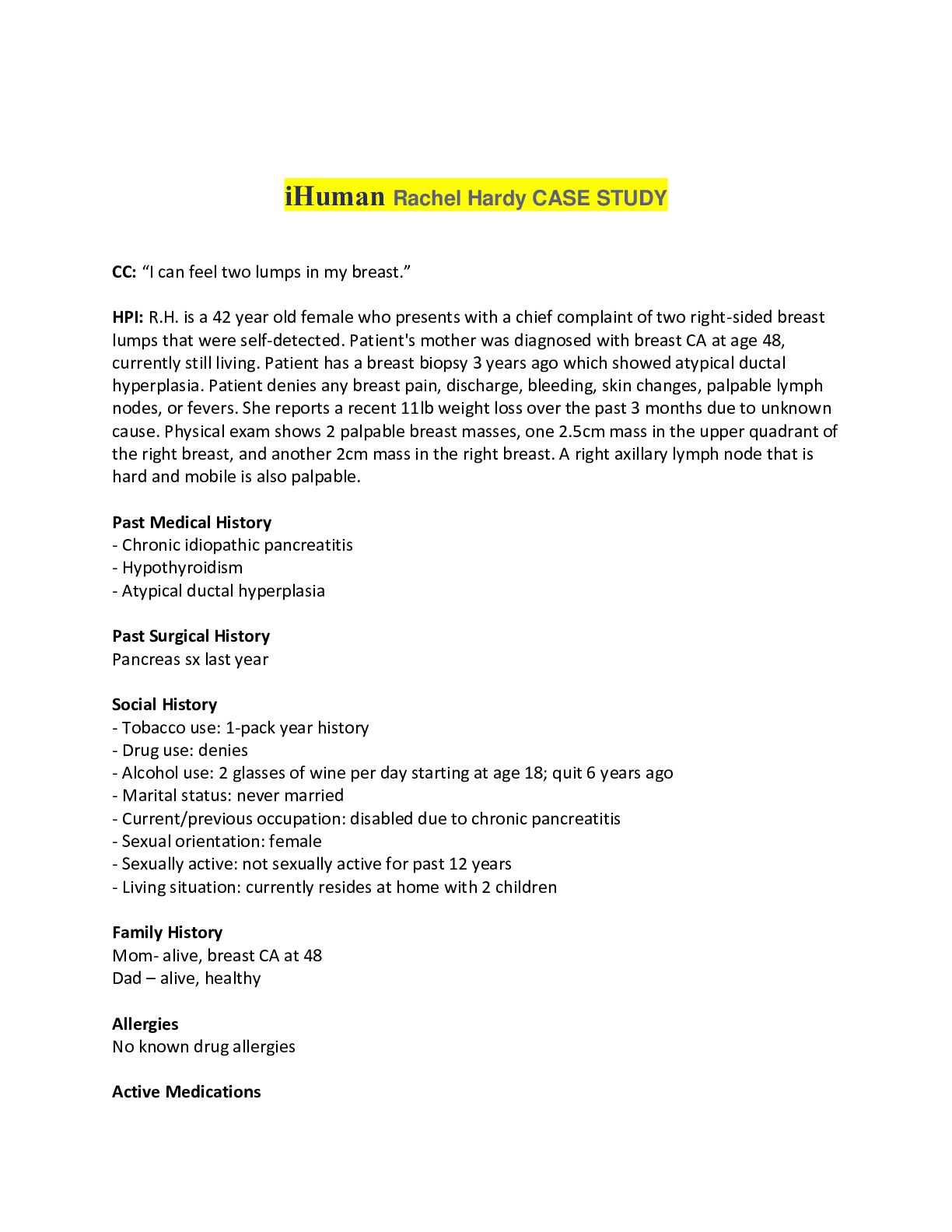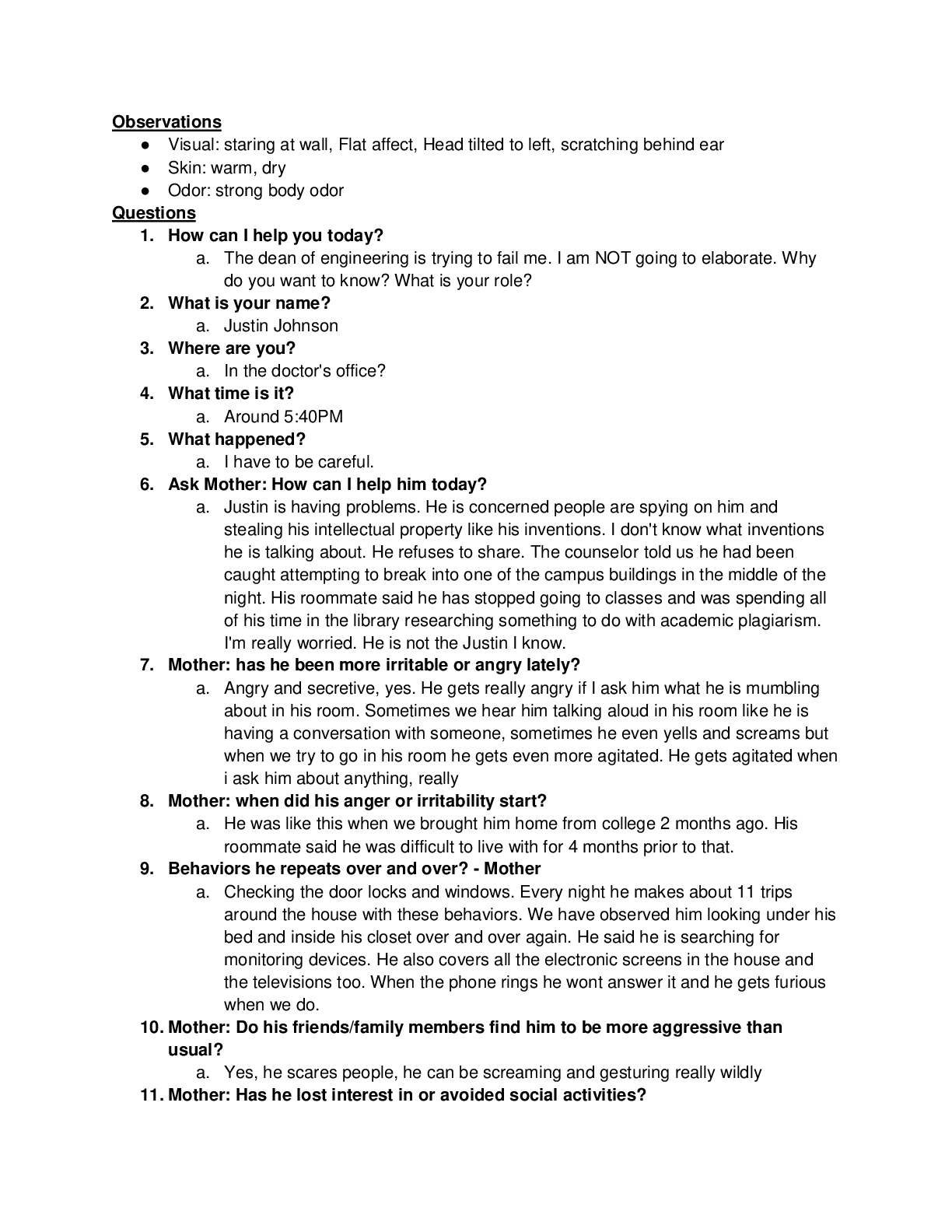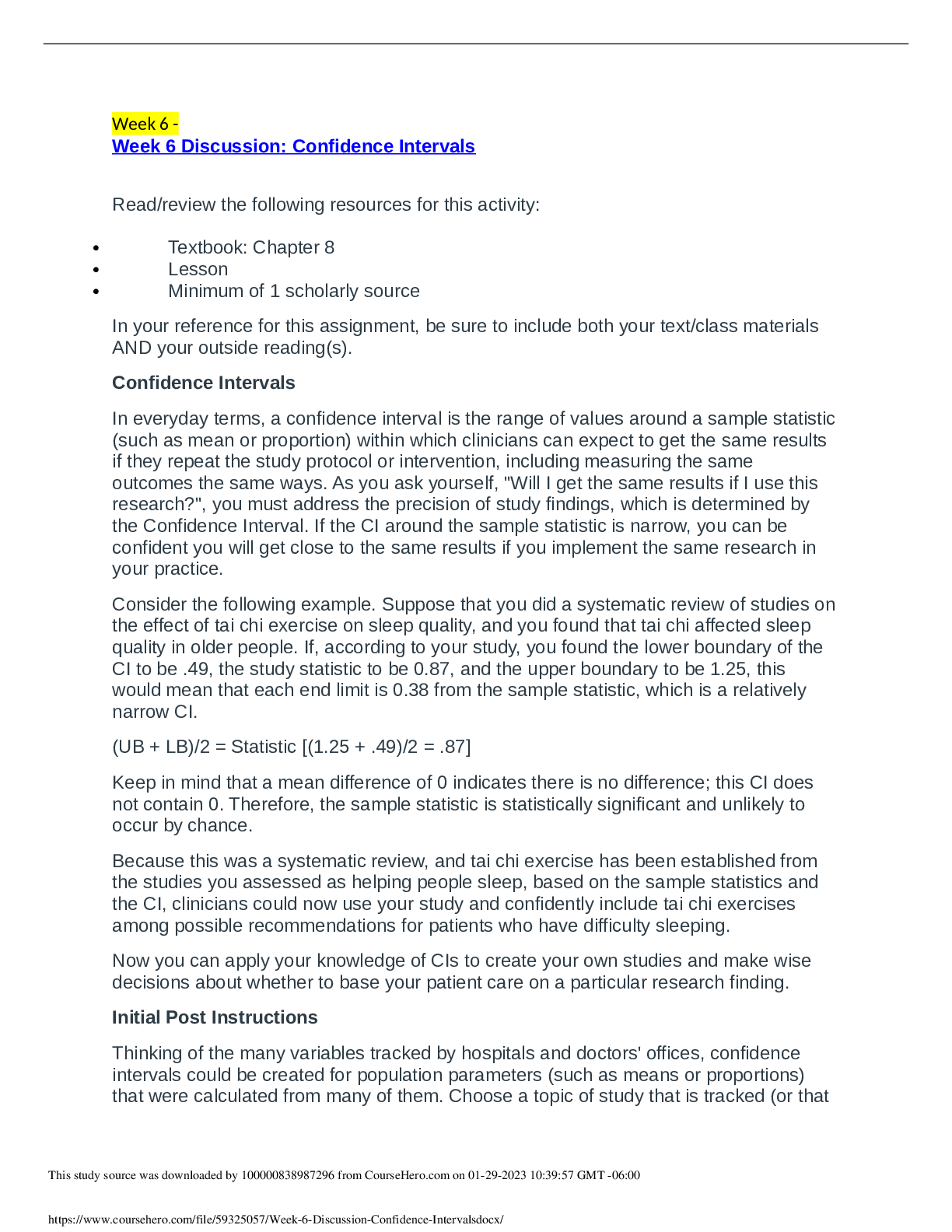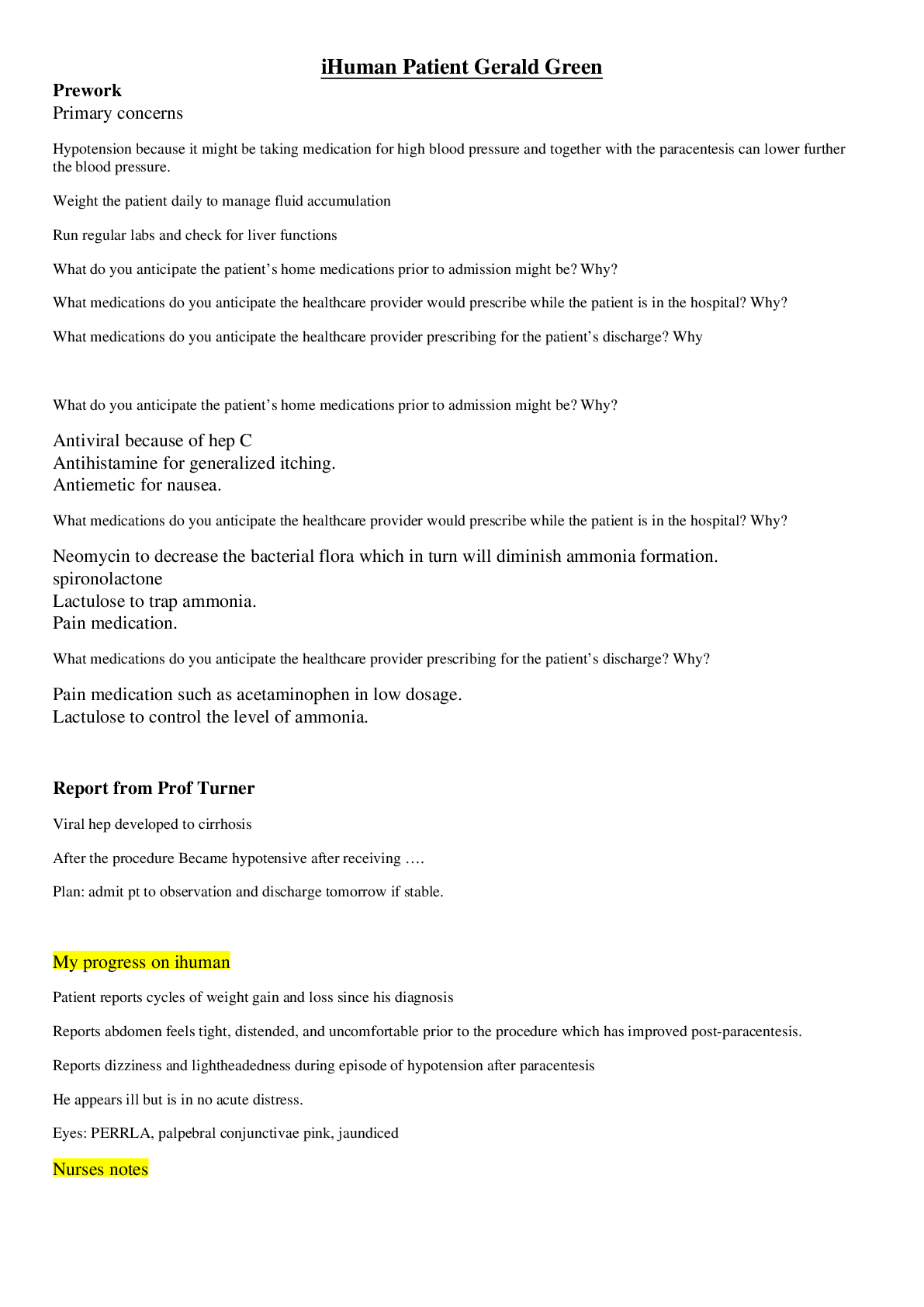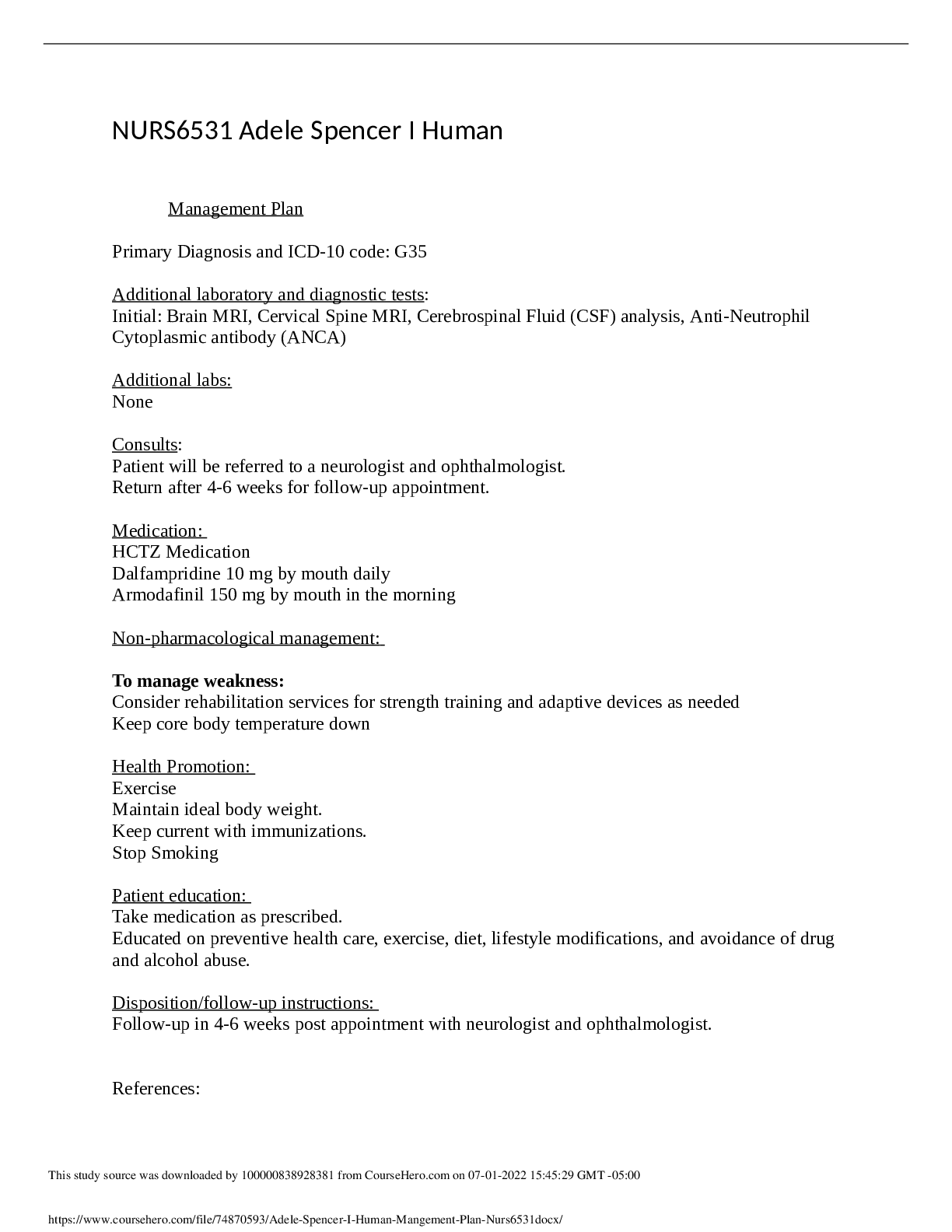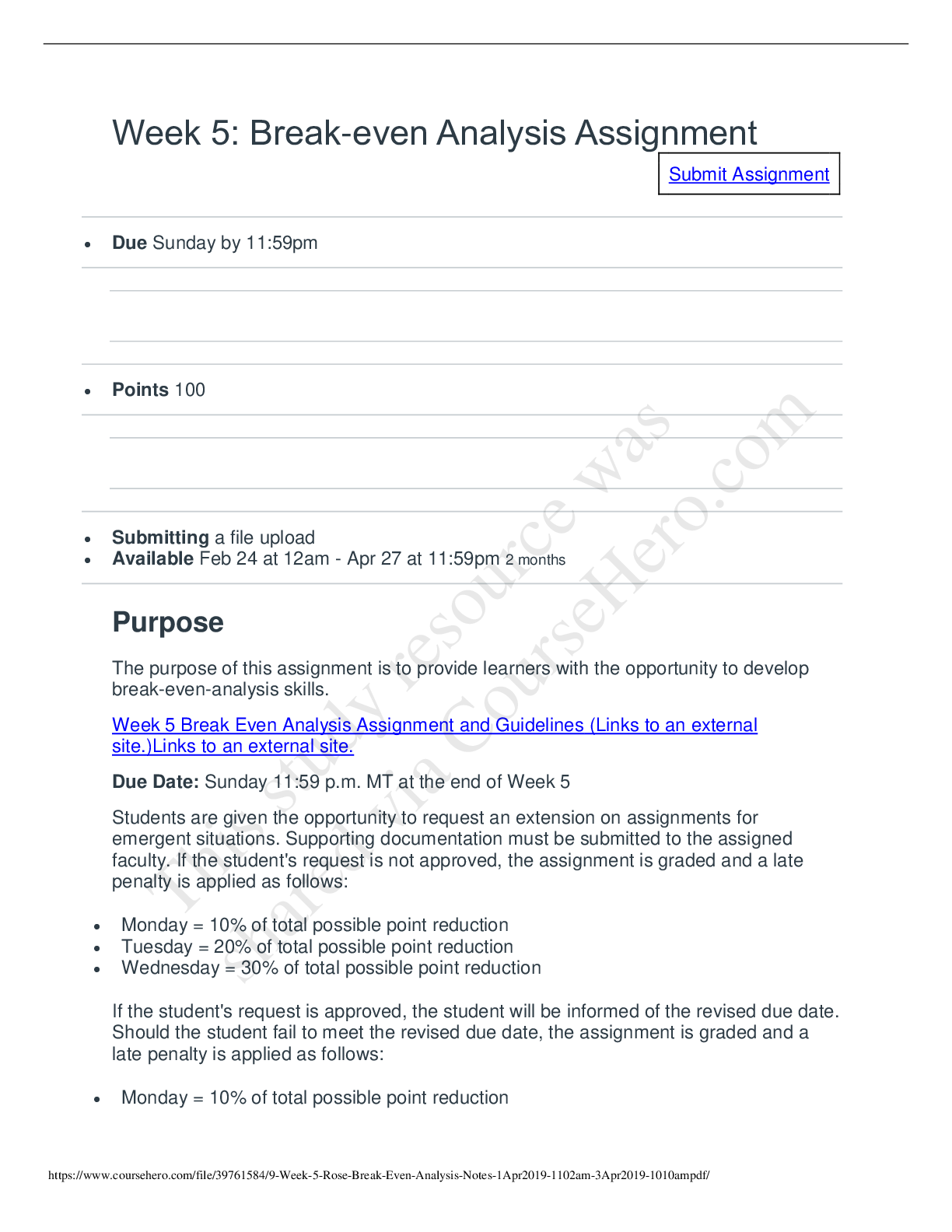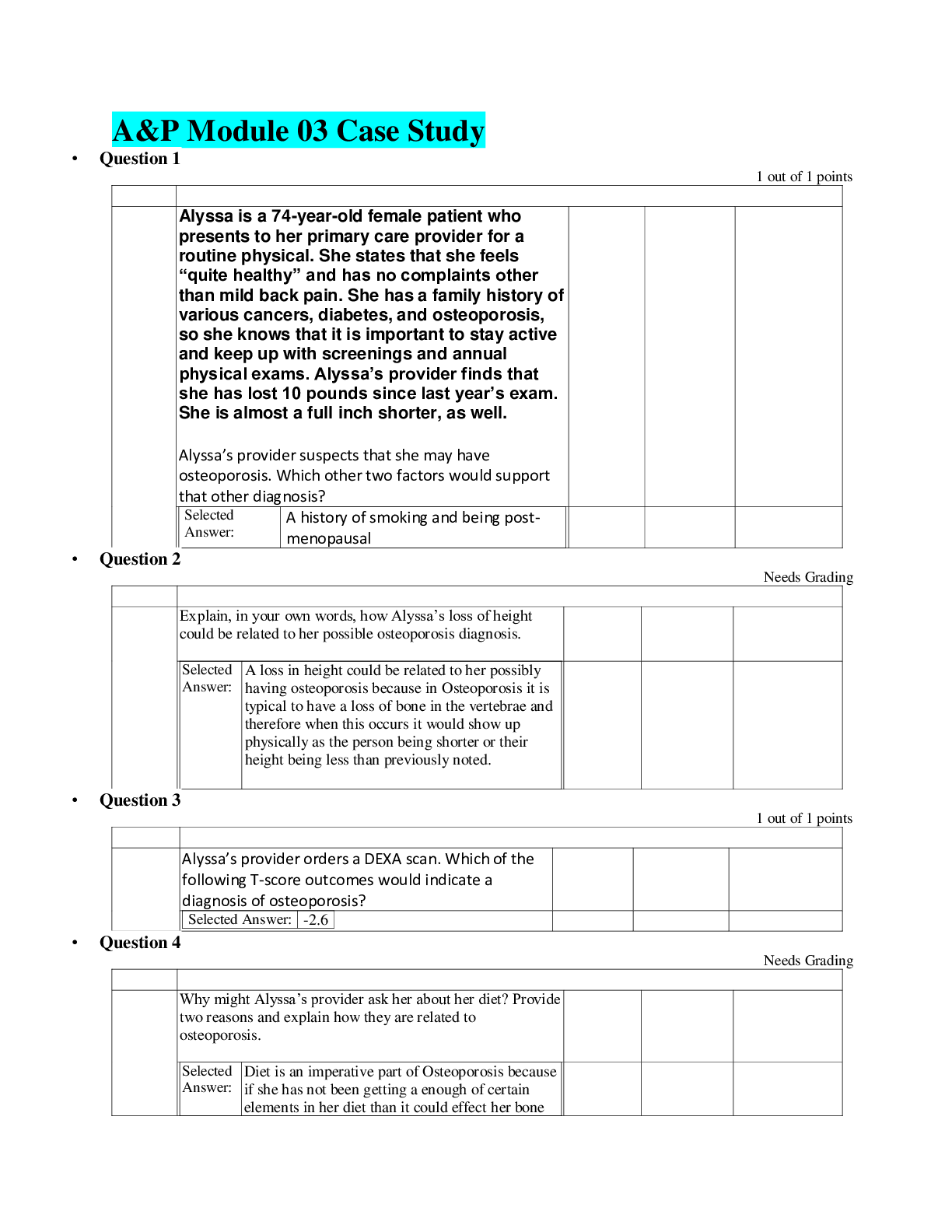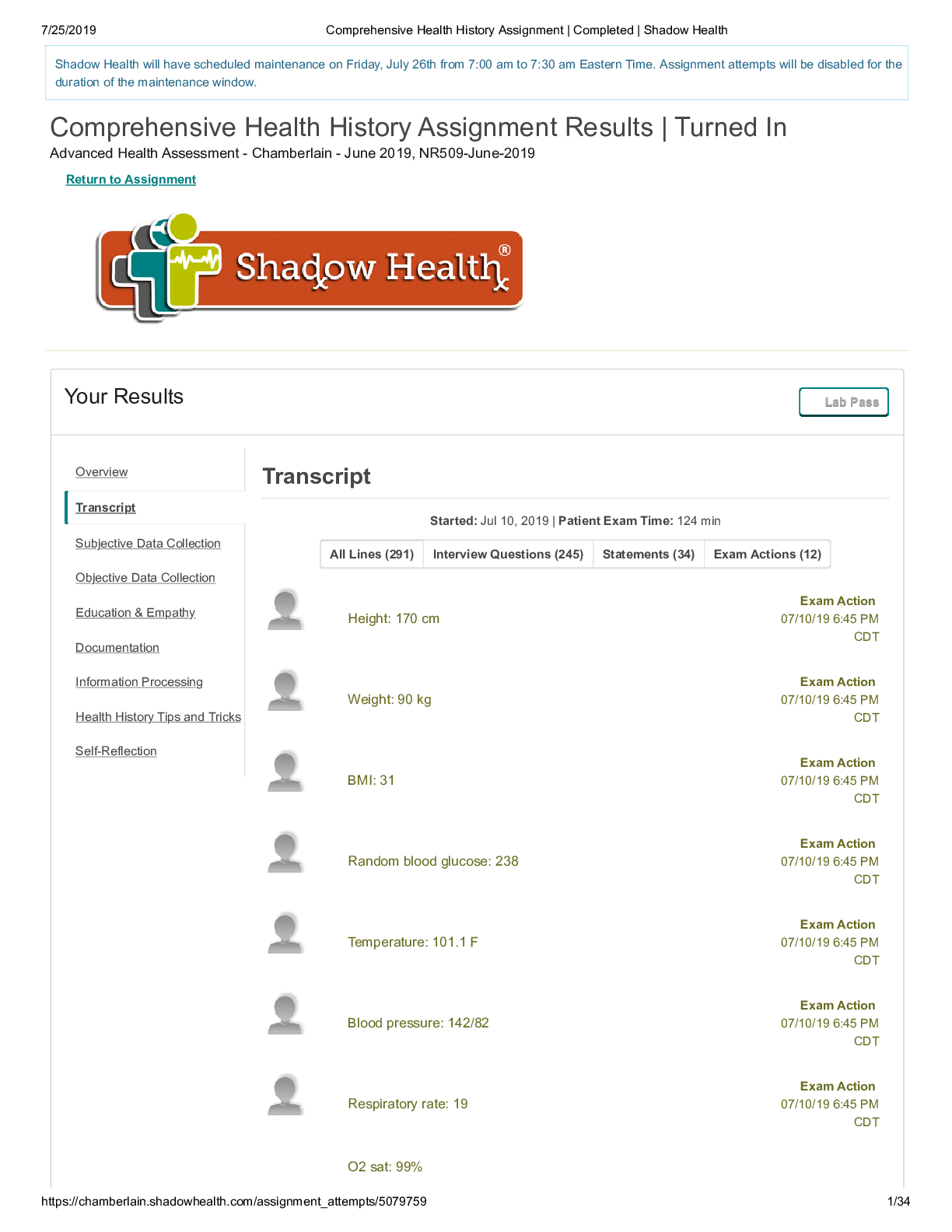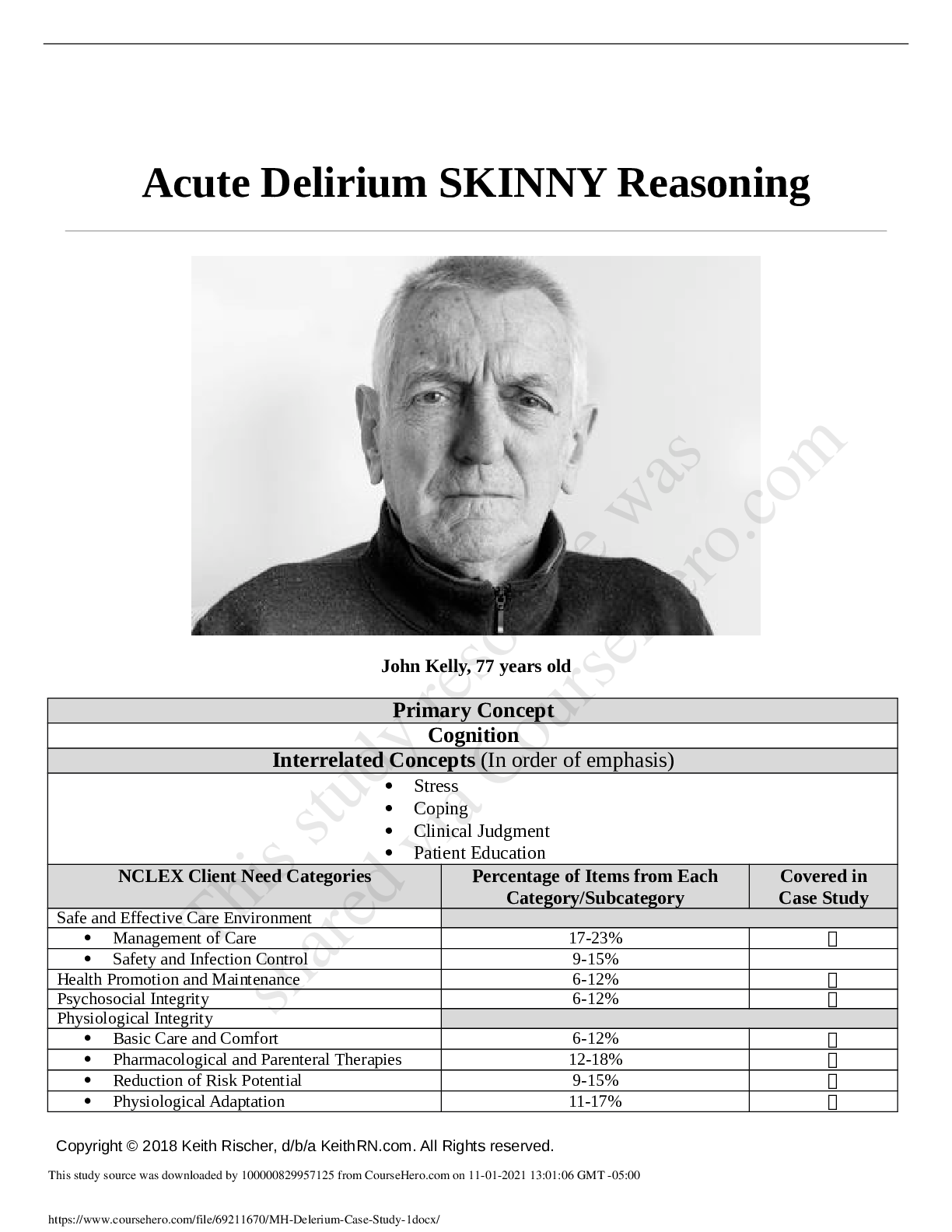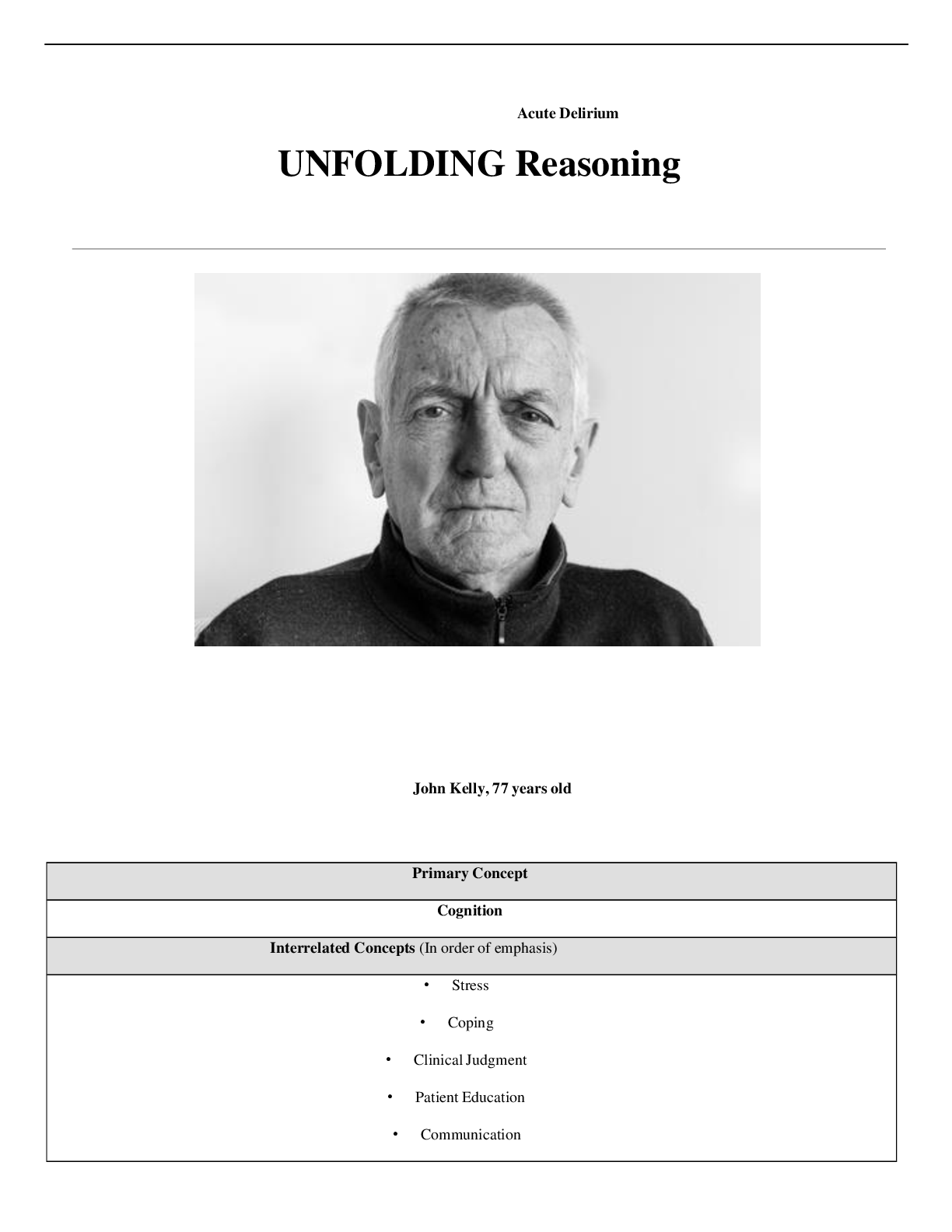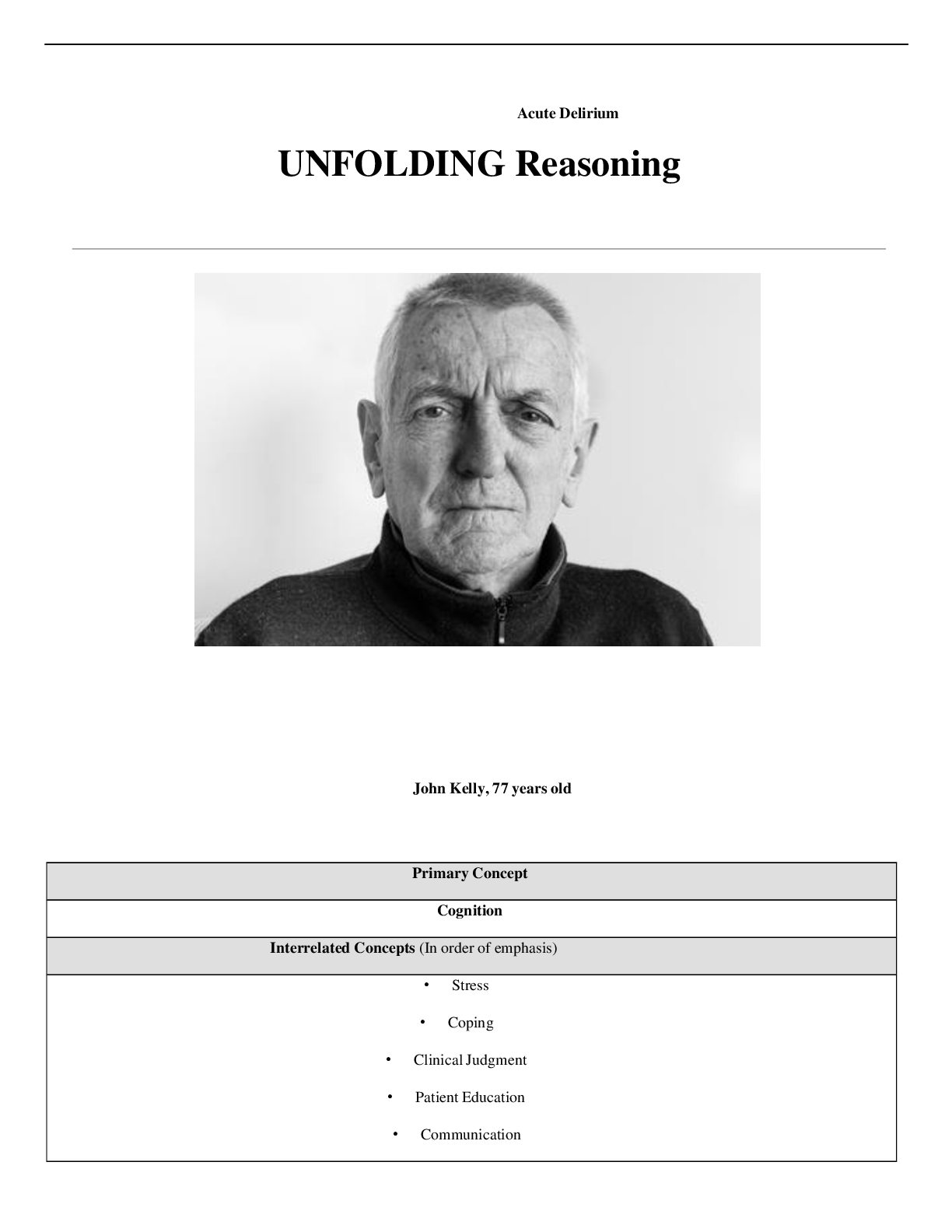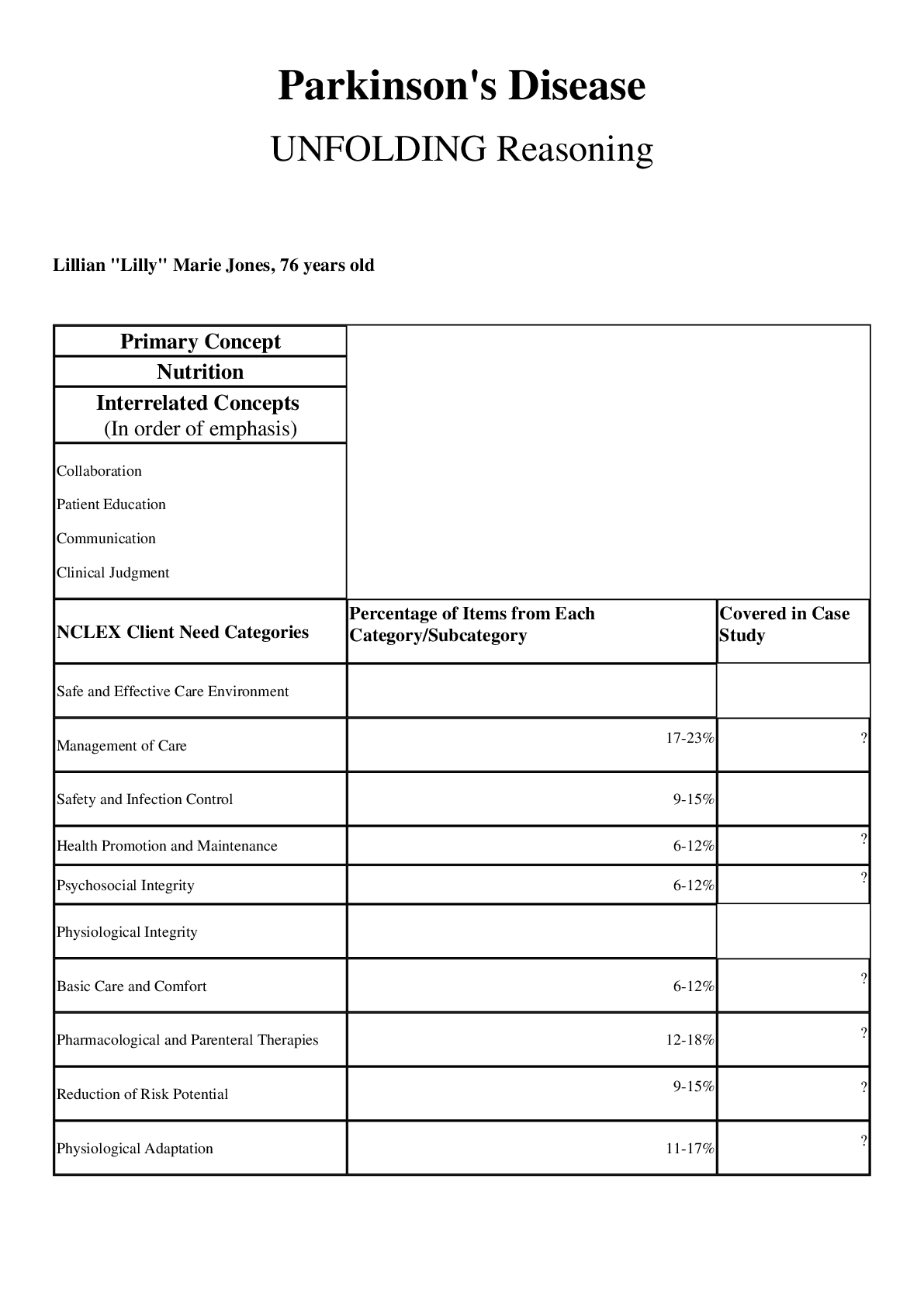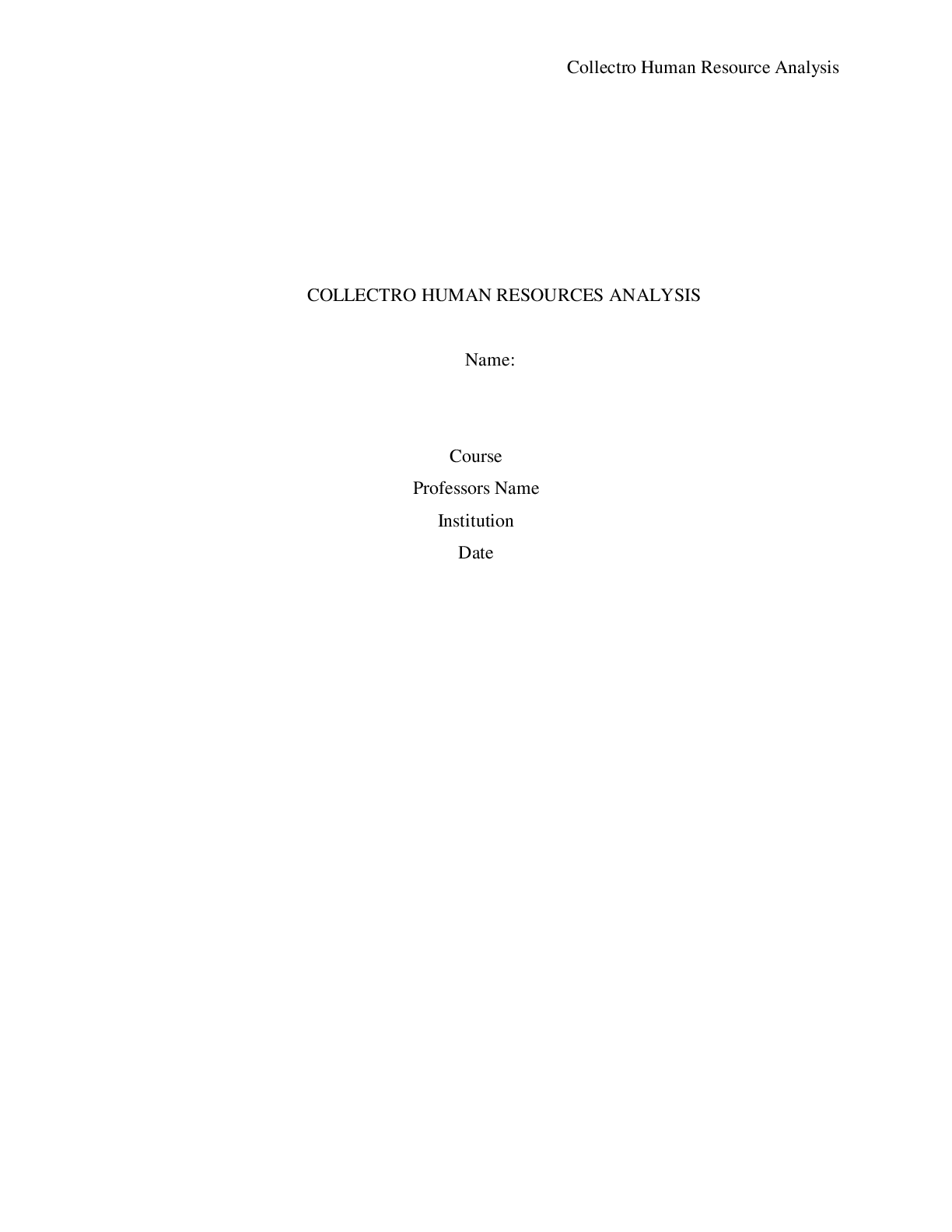Psychology > CASE STUDY > John Kelly _ Acute Delirium UNFOLDING Reasoning_2020 | Acute Delirium UNFOLDING Reasoning_A Grade (All)
John Kelly _ Acute Delirium UNFOLDING Reasoning_2020 | Acute Delirium UNFOLDING Reasoning_A Grade
Document Content and Description Below
Acute Delirium UNFOLDING Reasoning John Kelly, 77 years old Primary Concept Cognition Interrelated Concepts (In order of emphasis) • Stress • Coping • Clinical Judgment • Patient Education •... Communication NCLEX Client Need Categories Percentage of Items from Each Category/Subcategory Covered in Case Study Safe and Effective Care Environment Management of Care 17-23% Safety and Infection Control 9-15% Health Promotion and Maintenance 6-12% Psychosocial Integrity 6-12% Physiological Integrity Basic Care and Comfort 6-12% Pharmacological and Parenteral Therapies 12-18% Reduction of Risk Potential 9-15% Physiological Adaptation 11-17% UNFOLDING Clinical Reasoning Case Study History of Present Problem: John Kelly is a 77-year-old male with a history of osteoarthritis, asthma, early stage dementia, and heart failure who had a right total hip arthroplasty and is post-operative day one. Since surgery he has been on path, resting comfortably and his pain has been controlled with oxycodone 5 mg PO. When the nurse enters the room to do his morning assessment, John is agitated, combative and resistive to staff. He pulled out his Foley urinary catheter, his IV catheter and removed his surgical dressing. His legs are swung over the side rails and is trying to get out of bed. John does not know where he is and oriented to self only. He insists that he is at home and yells out, “You get the hell out of my home or I am going to call the police!” His wife is visibly upset and states that she has never seen him behave like this before. With tears in her eyes she asks you, “What is happening to my husband! Please do something to help him!” Personal/Social History: John is a retired high school math teacher who lives at home with his wife and lives independently. He is active at the senior center where he attends social activities 3-4 times a week. He attends Catholic Mass every Sunday with his wife. He is a nonsmoker and has a glass of wine 2-3 times a week with dinner. What data from the histories are RELEVANT and must be interpreted as clinically significant by the nurse? (Reduction of Risk Potential) RELEVANT Data from Present Problem: Clinical Significance: History of: o Osteoarthritis o Asthma o Dementia (early stage) o Heart failure 1 day post-op (r. hip arthroplasty) Prescribed 5 mg oxycodone P.O. Agitated, combative and resistant behavior o He insists he is at home and yells, “you get the hell out of my house or I am going to call the police” Increased risk for activity intolerance (weakness/fatigue) and injury or fall Disrupts patient’s ability to function independently Acute confusion Dementia is a risk factor for acute delirium Narcotics/opiates and comorbidities can cause behavior disturbances Significant distress to patient and spouse RELEVANT Data from Social History: Clinical Significance: Retired, married, independent and socially active Religious (Catholic) Indicates patient is able to complete ADL’s with full/complete independence May want spiritual or religious services involved in pt. care Religious/spiritual practices are adequate coping methods Patient Care Begins: Current VS: P-Q-R-S-T Pain Assessment: T: 99.1 F/37.3 C (oral) Provoking/Palliative: Pain in his right hip but unable to give details P: 102 (regular) Quality: Tenderness to palpation over incision site R: 18 (regular) Region/Radiation: Right hip BP: 155/65 Severity: Unable to verbalize due to confusion, tenderness to palpation but does not appear to be in acute discomfort based on assessment O2 sat: 95% room air Timing: Unable to verbalize What VS data are RELEVANT and must be interpreted as clinically significant by the nurse? (Reduction of Risk Potential/Health Promotion and Maintenance) RELEVANT VS Data: Clinical Significance: Temperature = 99.1 F B.P. = 155/65 Pulse = 102 99.1 F is a low-grade fever but elderly have a normal body temperature of below 98.6 this can be indicative of infection or underlying condition Hypertension can cause confusion or pt.’s inability to verbalize Current Assessment: GENERAL APPEARANCE: Agitated, attempting to climb out of bed, pulled out Foley catheter and IV catheter, is not grimacing as if he is in pain but does grimace when incision site is palpated RESP: Breath sounds clear with equal aeration bilaterally ant/post, nonlabored respiratory effort CARDIAC: Pink, warm & dry, slight edema present at incision site, heart sounds regular with no abnormal beats, pulses strong, equal with palpation at radial/pedal/post-tibial landmarks, brisk cap refill, no diaphoresis present NEURO: Alert & oriented to person only, very agitated, unable to maintain focus when asked questions, PERRL, emotionally labile, not easily re-directed, face is symmetrical, speech is clear GI: Abdomen flat, soft/nontender, bowel sounds hypoactive but audible per auscultation in all four quadrants GU: Foley cather pulled out, 400 mL clear, yellow urine in collection bag from the last eight hours SKIN: Incision to right hip intact, patient removed dressing and incision is approximated with sutures, some minor erythema at the site and minor bruising, no warmth, and scant blood tinged drainage noted on the dressing, no odor present. What assessment data is RELEVANT and must be interpreted as clinically significant by the nurse? (Reduction of Risk Potential/Health Promotion & Maintenance) RELEVANT Assessment Data: Clinical Significance: Very agitated + climbing out of bed Pulled out Foley and IV catheter Grimacing upon palpation Agitation and unwarranted aggressive behavior is often indicative of fear, pain or major medical problem Patient was not able to verbalize his need/desire to have catheters taken out Incision will likely be tender, but unable to determine if he is in constant pain Radiology Reports: CT Head What diagnostic results are RELEVANT and must be interpreted as clinically significant by the nurse? (Reduction of Risk Potential/Physiologic Adaptation) RELEVANT Results: Clinical Significance: No evidence of acute infarction, intracranial hemorrhage, or mass- effect seen. No abnormalities or changes detected on head CT no need for further testing Lab Results: Complete Blood Count (CBC:) Current: High/Low/WNL? Prior to Admission: WBC (4.5–11.0 mm 3) 10.8 WNL 6.5 Neutrophil % (42–72) 74 High 55 Hgb (12–16 g/dL) 10.1 Low 12.8 Platelets (150-450 x103/µl) 225 WNL 252 What lab results are RELEVANT and must be recognized as clinically significant by the nurse? (Reduction of Risk Potential/Physiologic Adaptation) RELEVANT Lab(s): Clinical Significance: TREND: Improve/Worsening/Stable: High Neutrophil % Low Hemoglobin Neutrophilia can be caused by bacterial/pyogenic infections (fever), heart failure, autoimmune disorders Anemia Worsening - - - - - - Continued [Show More]
Last updated: 1 year ago
Preview 1 out of 13 pages
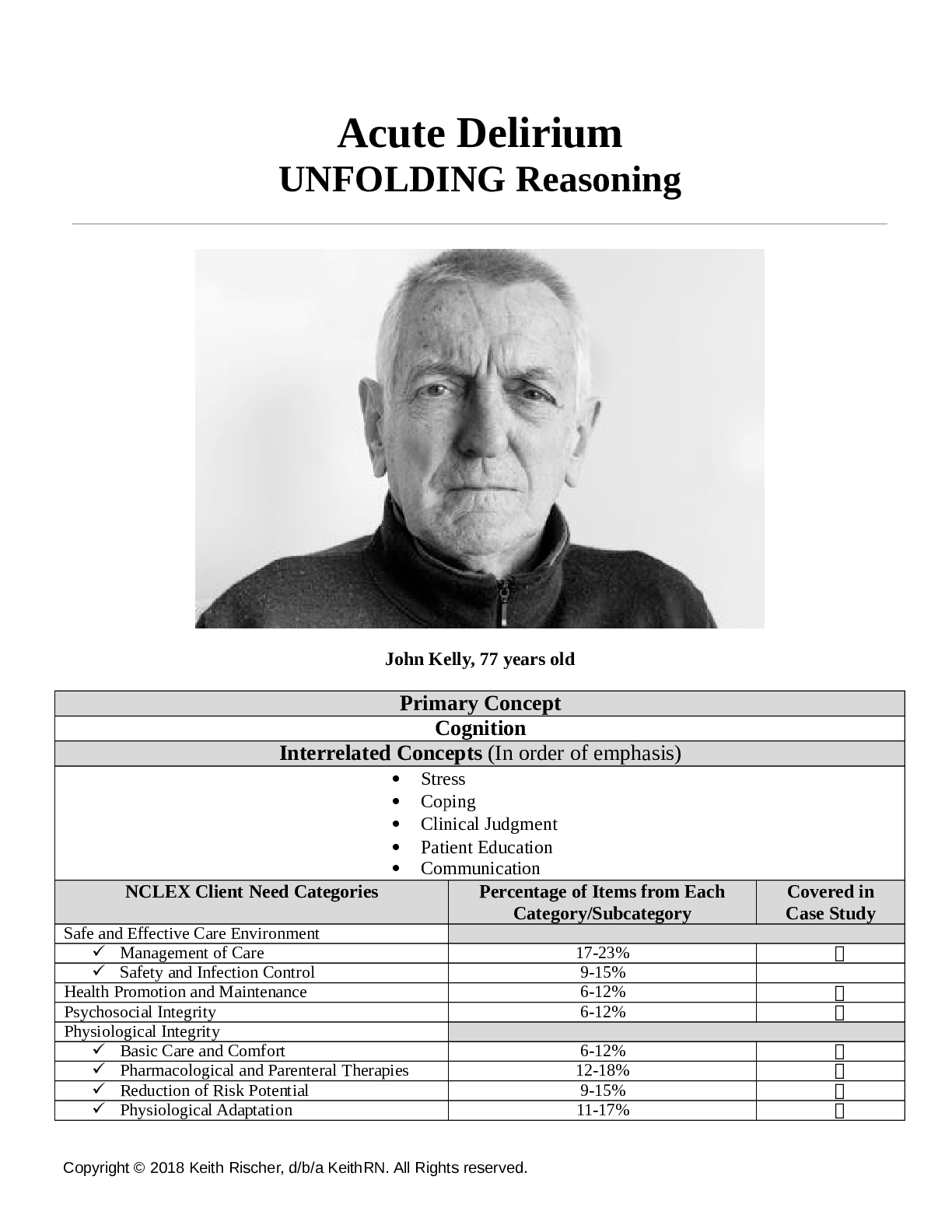
Reviews( 0 )
Document information
Connected school, study & course
About the document
Uploaded On
Mar 28, 2021
Number of pages
13
Written in
Additional information
This document has been written for:
Uploaded
Mar 28, 2021
Downloads
1
Views
144

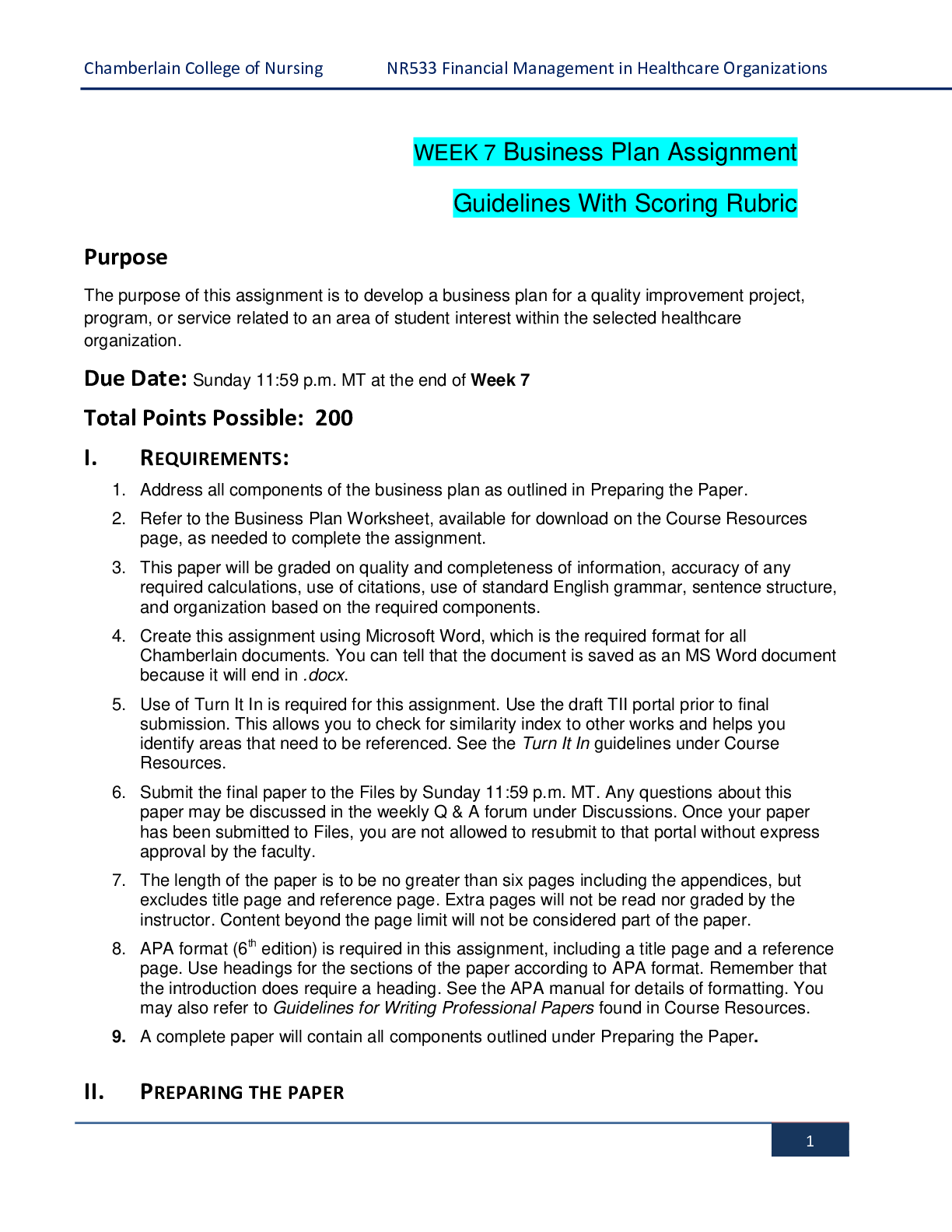
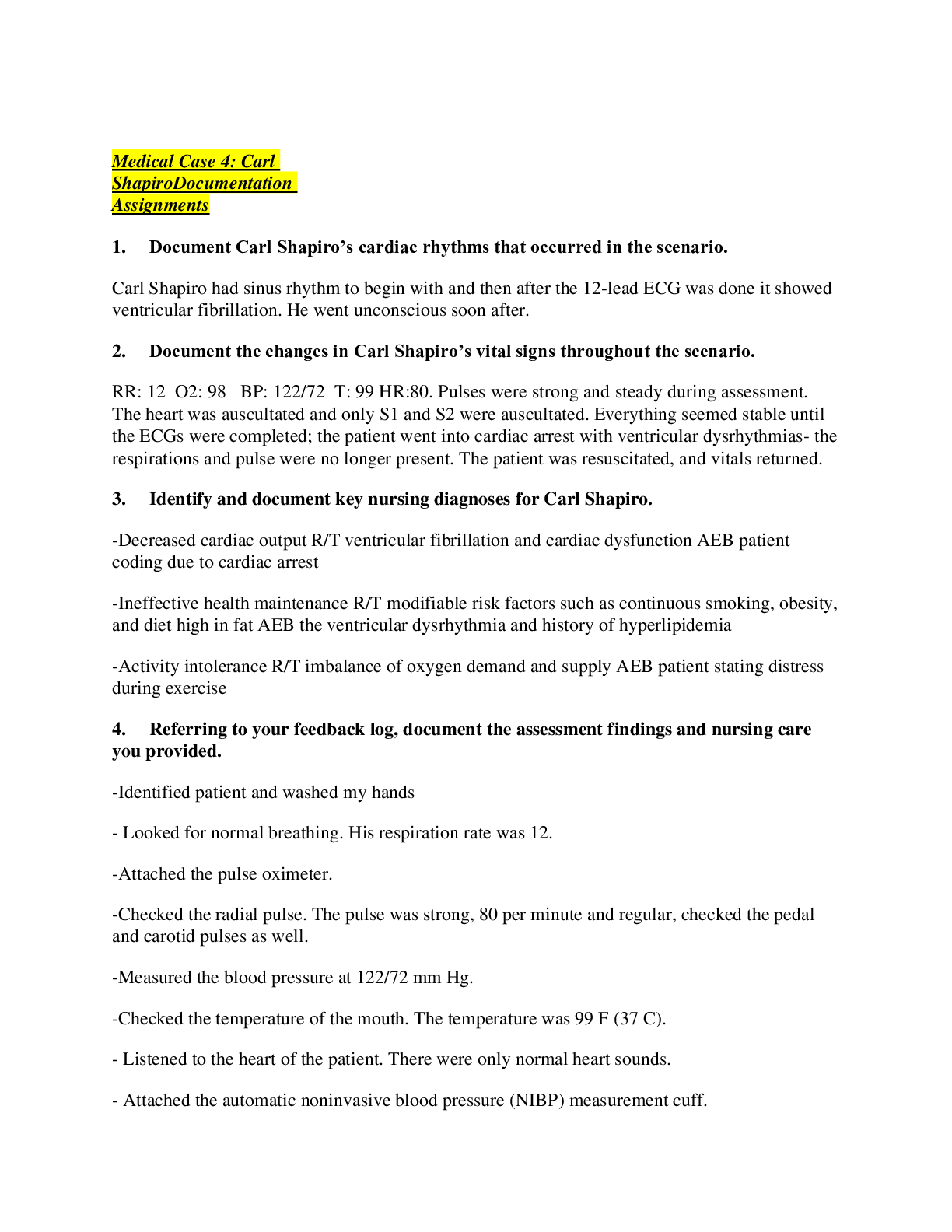
.png)
